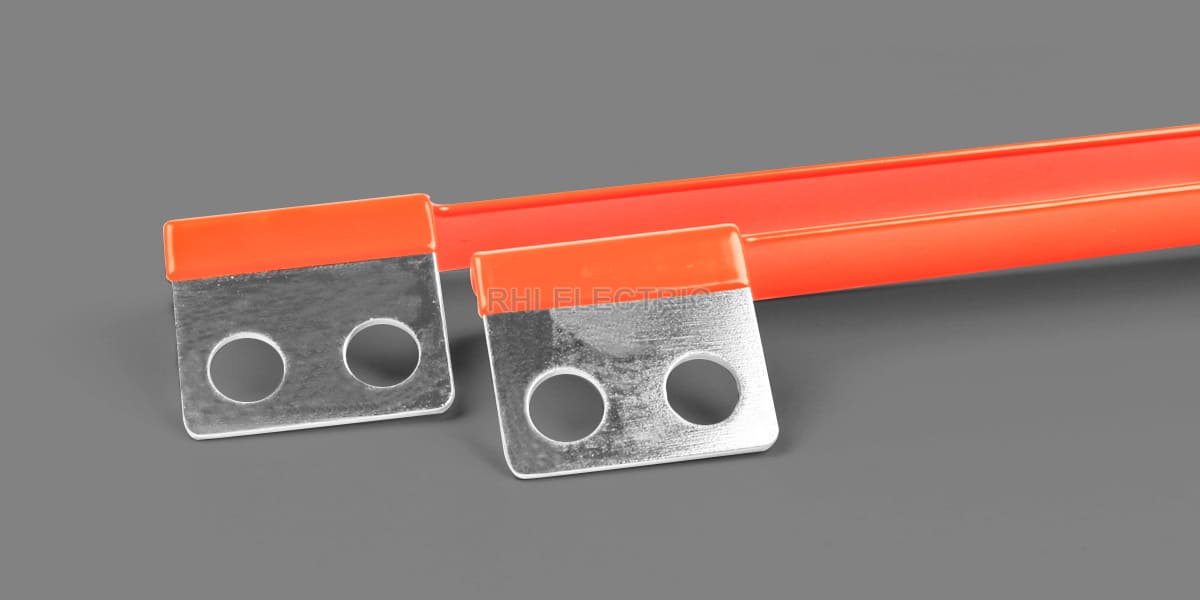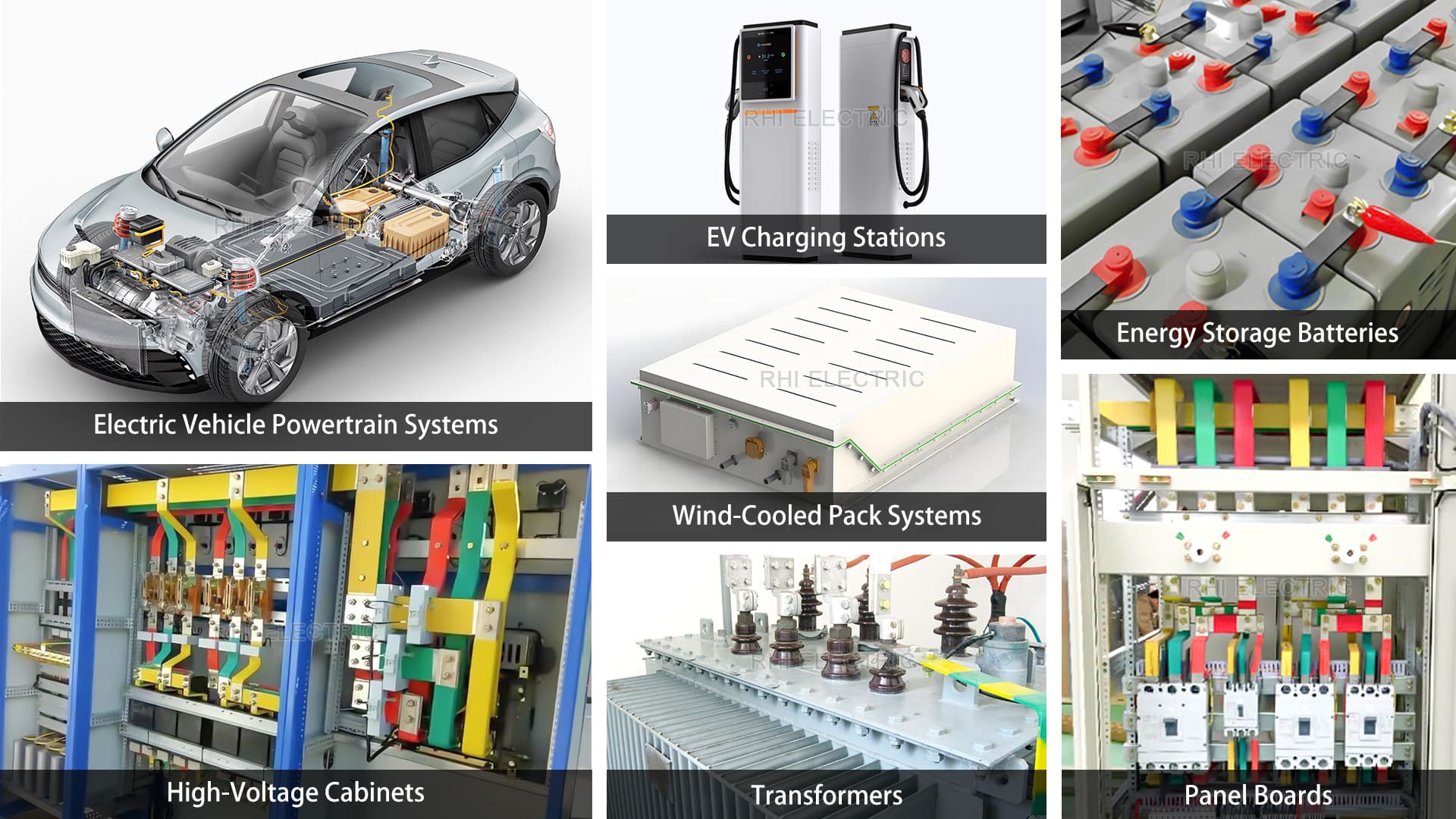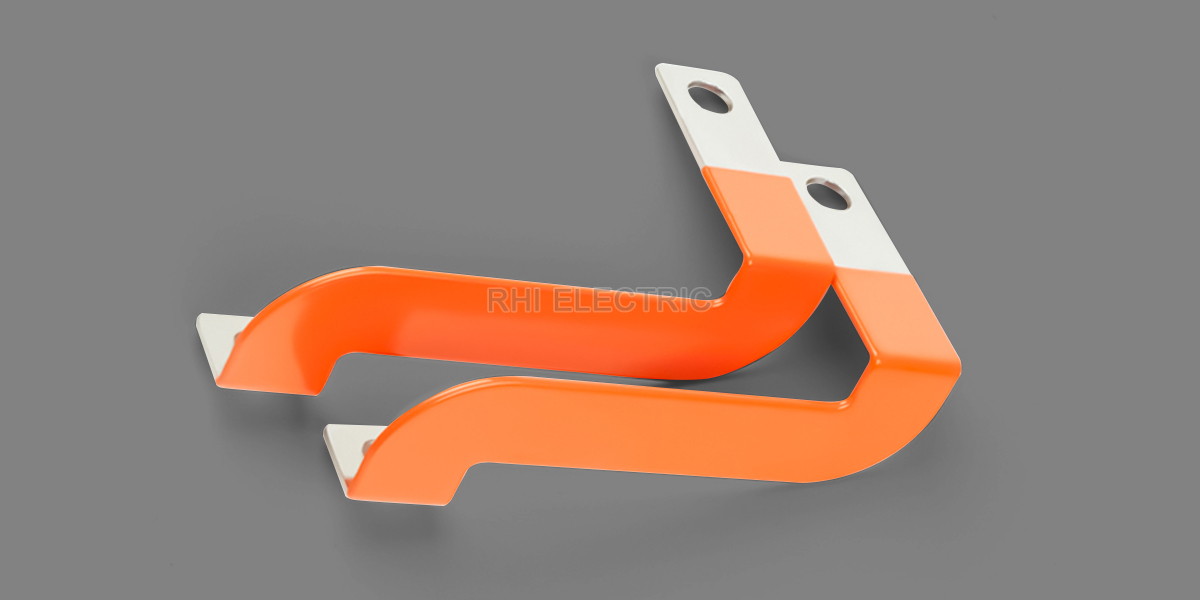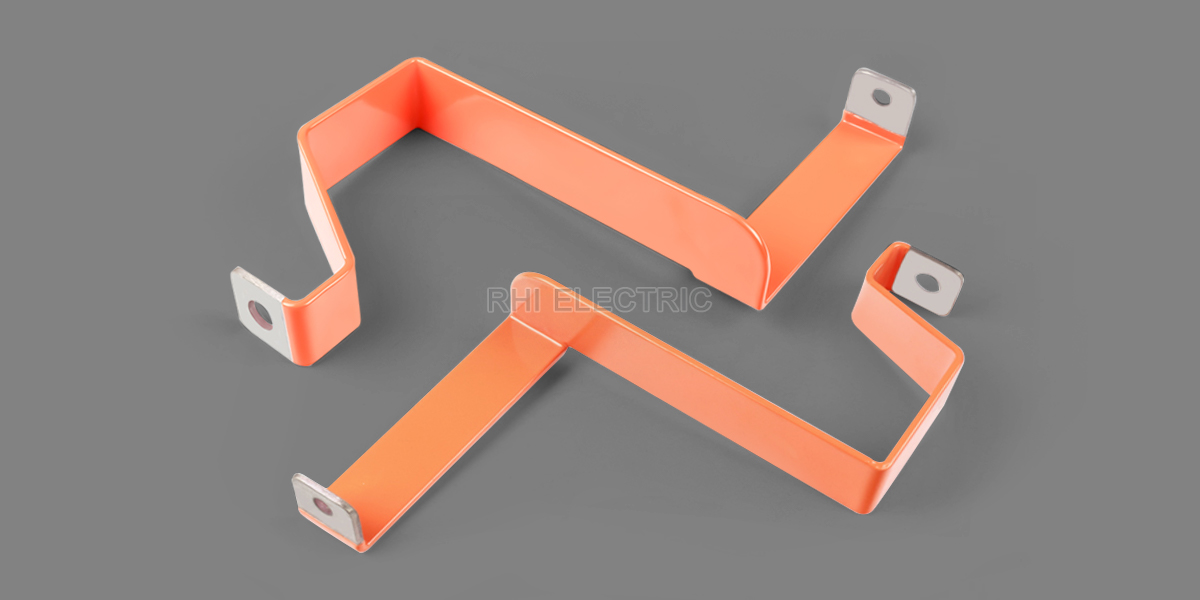

Copper Busbars with Epoxy Powder Insulation
Epoxy powder coating, as a high dielectric insulator for copper conductors, offers significant advantages in busbar applications. This free-flowing thermosetting powder provides exceptional protection for electrical components and enhances overall busbar system efficiency. It delivers smooth, continuous, crack-free coverage with high dielectric strength and long-lasting insulation. Additionally, epoxy powder coatings are heat, wear, corrosion, moisture, and impact-resistant, making them ideal for busbar insulation needs. The coating uniformly covers all copper busbar surfaces, ensuring consistent protection even for complex geometries and confined spaces.
Advantages
- Faster production and lower costs
- Reduces voltage drop and component count
- Thinner insulation layer, better heat dissipation
- Enhances busbar system safety and reliability
- Smooth and flat coating, excellent sealing and insulation
- Strong adhesion, perfect for irregular busbars and tight spaces

Why Use Powder Coating?
Epoxy powder coating (EP) is a free-flowing thermosetting dry powder that offers excellent protection and boosts system efficiency as a dielectric insulator for power busbars. Here are the key reasons to use epoxy powder coating:
1. Exceptional Protection: It provides smooth, continuous, crack-free coverage with high dielectric strength and long-lasting insulation. It's also heat, flame, impact, wear, moisture, and corrosion-resistant, forming a protective "skin seal" that ensures coating integrity and adhesion.
2. Enhanced System Efficiency: Powder-coated conductors improve airflow, optimize space, increase reliability, reduce voltage drop and component count, and lower installation and maintenance costs, significantly boosting overall busbar system efficiency. Multi-level components are produced faster and at lower costs.
3. Superior Electrical Performance: With a typical insulation rating of 800 volts/mil, powder coating offers excellent electrical specifications. It provides a longer insulation lifespan and reduces the risk of flashover and partial discharge due to the lack of air gaps between the conductor and insulation layer.
4. Broad Applicability: Powder coating uniformly covers all electrical busbar surfaces, providing consistent insulation even for complex geometries and tight spaces. It's applied after all bends, contours, punching, and milling, ensuring uniform coverage.
5. High-Temperature Performance: It has a high-temperature rating, typically 130°C according to relevant UL standards (94 V-0 flammability standard), depending on the specific formulation and application factors.
Product Details
|
Conductor Material: |
T2 Copper Aluminium (1060 ) Other materials customizable. |
|
Surface Treatment: |
Tin Plating, Nickel Plating, Silver Plating |
|
Application: |
Distribution Cabinets, Photovoltaic Inverters, Solar Panels, Energy Storage Batteries, Switchboard etc. |
|
Quote Response Time: |
After receiving the drawings and verifying their feasibility, it will take 5-7 days to make a quotation. |
|
Quality Management Standard: |
Meet Auto Industry IATF16949 |
|
Eco-friendly Certificate: |
RoHS, REACH |
|
Delivery Time: |
The delivery time will take about 15-20 days after payment. |
Application Techniques
Powder coating can be applied using two methods:
1. Electrostatic Spraying: Ideal for battery busbars with relatively flat geometries.
2. Fluidized Bed Immersion: Suitable for electric busbars with multiple turns and tight bends.
After application, the coating needs to be oven-cured. The choice of method depends on the size, shape, and electrical requirements of the copper busba
|
Thickness |
Insulating Material |
Dielectric Strength |
Withstand Voltage |
Temperature Resistant |
|
0.4-0.8mm |
Epoxy |
20KV/mm |
5000V |
150°C |
Epoxy powder-coated rigid copper busbars offer excellent conductivity, mechanical strength, and insulation, making them ideal for electric vehicles (EVs), charging stations, energy storage batteries, high-voltage cabinets, transformers, and distribution panels. The epoxy coating enhances corrosion resistance and insulation, ensuring efficient and safe power transmission.

In EVs and energy storage systems, these insulated busbars improve conductivity and heat dissipation, reducing heat buildup and boosting energy efficiency and safety. Their durability in high-load equipment extends equipment lifespan, reduces maintenance costs, and provides reliable insulation to prevent electrical faults, enhancing system reliability.










